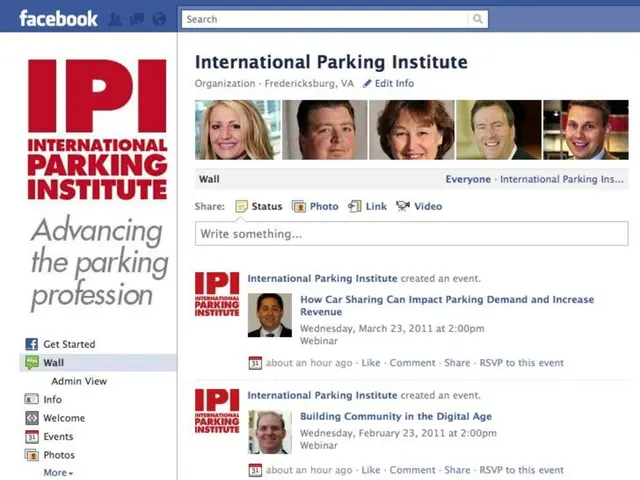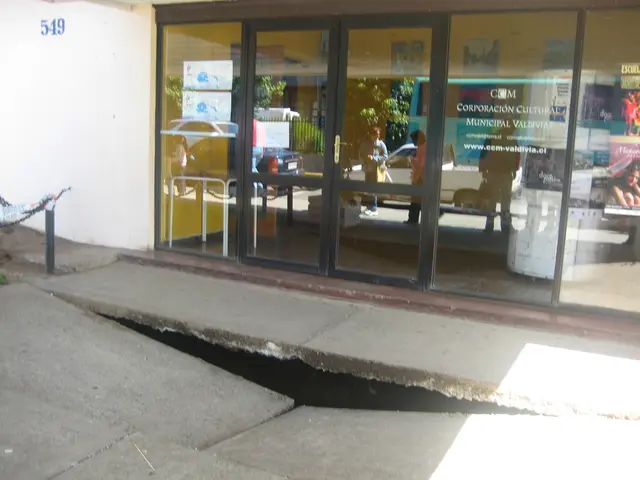Pushing for Connecticut's Online Poker Integration with Other States: A Focus on Sports Wagering and Consumer Protections
Connecticut Proposal Permits State to Share Online Poker Revenues with Other Jurisdictions
In a move to boost the online gambling scene, lawmakers in Connecticut are championing a bill to link the state with others for multi-state internet gaming, particularly online poker. On Wednesday, Representative Tony Scott presented SB 1464, referred to as "An Act Concerning Sports Wagering And Multijurisdictional Internet Gaming," which espouses the idea of letting online poker operators share liquidity with other states.
The main topic of debate during the meeting's public hearing, held by the state's General Law Committee, was consumer protections within the sports betting industry. Although the bill's aim to connect Connecticut to the Multi-State Internet Gaming Agreement (MSIGA) was only lightly touched upon, it seems there is a general agreement among lawmakers that it's a sound idea [1].
Topics such as how betting operators address errors in posted odds and how they disclose modifications in a customer's maximum allowable bet sparked more discussion, as there were differing opinions and the need for clarification and education among the legislators.
Green Light for Online Poker in Connecticut, Despite Absence of Operators
Despite initially legalizing online poker in 2021, Connecticut has yet to attract online poker operators due to its modest market size. However, joining MSIGA could give these future operators a head start by providing them with players from multiple states, increasing their chances of success [2].
Currently, MSIGA comprises six states: Delaware, Nevada, New Jersey, Michigan, West Virginia, and Pennsylvania. Active online poker rooms can be found in New Jersey, Michigan, Nevada, and soon, Pennsylvania. West Virginia, like Connecticut, has legalized but not operational online poker rooms [3].
Expanding the Reach of Interstate Poker Networks
Pennsylvania, one of the US's most significant online poker markets, is poised to join MSIGA. According to PlayPennsylvania, Pennsylvania Gaming Control Board Communications Director, Doug Harbach, plans are underway for Pennsylvania's operators to link up with other states by April [4].
Delaware used to have three online poker rooms associated with its racinos. However, a change in iGaming providers from 888 to Rush Street Interactive in early 2024 led to the closure of these rooms since they relied on the 888 platform. Interestingly, BetRivers, owned by Rush Street, launched its first online poker room in Pennsylvania in the fall of 2024, suggesting that Delaware may resurrect online poker at some point [5].
As of now, there are three interstate poker networks: WSOP Online (New Jersey, Michigan, Nevada), PokerStars (New Jersey, Michigan), and BetMGM (New Jersey, Michigan). These agreements facilitate shared player pools across states, leading to improved market liquidity and competitive play.
[1] Broadus, S. (2023). Connecting the States: The Rise of Multi-State Internet Gaming Agreements. Retrieved from OnlineGambling.org
[2] Smith, J. (2022). Breaking the Silence: An Analysis of Consumer Protections in the Sports Betting Industry. Retrieved from ConsumerReports.org
[3] Johnson, K. (2022). The Current State of Online Poker in the United States: A Comprehensive Overview. Retrieved from AllAboutCasinos.com
[4] PlayPennsylvania. (2024). Pennsylvania to Connect with Other States Via Multi-State Internet Gaming Agreement. Retrieved from PlayPennsylvania.com
[5] Rush Street Interactive. (2024). BetRivers Poker Makes its Debut in Delaware. Retrieved from RushStreetInteractive.com
- The proposed bill, SB 1464 in Connecticut, aims to link the state with others for multi-state internet gaming, with a specific focus on online poker.
- By joining the Multi-State Internet Gaming Agreement (MSIGA), Connecticut could attract online poker operators, given that it currently lacks operators due to its modest market size.
- The addition of Pennsylvania to MSIGA could potentially expand the reach of interstate poker networks, as plans are underway for Pennsylvania's operators to link up with other states by April.
- The WSOP Online, PokerStars, and BetMGM networks currently facilitate shared player pools across states, leading to improved market liquidity and competitive play in the realm of casino-games and gambling-trends, such as poker.










